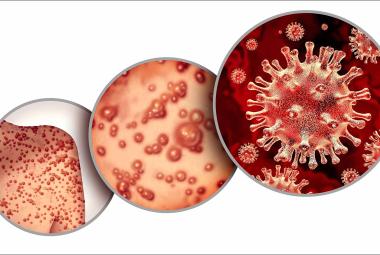A large European study below, further supports our suggestions for some years that the use of antidepressants during pregnancy does not harm the infant’s intellectual capacity later on.
While a commonly asked question, “Does my antidepressant affect my infant?”, we have for the past 10 years suggested that there are no data to suggest that antidepressants have any effect on the developing brain. In fact, the we believe that “untreated depression” is a major harm to the neurobehavioral development in infants.
This new study further clarifies our previous suggestions that the use of antidepressants during pregnancy, do not affect the intellectual capacity of the infant.
We’ve been saying this for years, but this really large well-done study supports our previous statements.
Check out this review and the paper below.
https://medlineplus.gov/news/fullstory_167155.html
Tom Hale R.Ph., Ph.D.
Professor
InfantRisk Center
JAMA Psychiatry. 2017 Jul 12. doi: 10.1001/jamapsychiatry.2017.1727. [Epub ahead of print]
Association of Antidepressant Medication Use During Pregnancy With Intellectual Disability in Offspring.
Viktorin A1, Uher R2, Kolevzon A3, Reichenberg A3, Levine SZ4, Sandin S1
Abstract
IMPORTANCE:
Maternal antidepressant medication use during pregnancy has previously been associated with adverse outcomes in offspring, but to our knowledge, the association with intellectual disability (ID) has not been investigated.
OBJECTIVES:
To examine the association of maternal antidepressant medication use during pregnancy with ID in offspring and investigate the importance of parental mental illness for such an association.
DESIGN, SETTING, AND PARTICIPANTS:
A population-based cohort study of 179 007 children born from January 1, 2006, through December 31, 2007, with complete parental information from national registers who were followed up from birth throughout 2014.
MAIN OUTCOMES AND MEASURES:
We estimated relative risks (RRs) and 95% CIs of ID in children exposed during pregnancy to any antidepressant medication or specifically to selective serotonin reuptake inhibitor (SSRI) antidepressants, all other non-SSRI antidepressants, or other nonantidepressant psychotropic medications. Analyses were adjusted for potential confounders. In addition to full population analyses, we used a subsample to compare mothers who used antidepressants during pregnancy with mothers who had at least one diagnosis of depression or anxiety before childbirth but did not use antidepressants during pregnancy.
RESULTS:
Of the 179 007 children included in the study (mean [SD] age at end of follow-up, 7.9 [0.6] years; 92 133 [51.5%] male and 86 874 [48.5%] female), ID was diagnosed in 37 children (0.9%) exposed to antidepressants and in 819 children (0.5%) unexposed to antidepressants. With adjustment for potential confounders, the RR of ID after antidepressant exposure was estimated at 1.33 (95% CI, 0.90-1.98) in the full population sample and 1.64 (95% CI, 0.95-2.83) in the subsample of women with depression. Results from analyses of SSRI antidepressants, non-SSRI antidepressants, and nonantidepressant psychotropic medications and analyses in the clinically relevant subsample did not deviate from the full-sample results.
CONCLUSIONS AND RELEVANCE:
The unadjusted RR of ID was increased in offspring born to mothers treated with antidepressants during pregnancy. After adjustment for confounding factors, however, the current study did not find evidence of an association between ID and maternal antidepressant medication use during pregnancy. Instead, the association may be attributable to a mechanism integral to other factors, such as parental age and mother's psychiatric disorder.
PMID: 28700807







